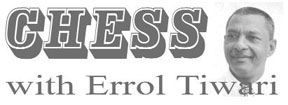A 13-year-old boy of modest upbringing decides that he will become the world chess champion. When the just-turned teen defeated former world champion Anatoly Karpov at the Reykjavik Rapid in 2004, the legendary grandmaster described the encounter succinctly and appreciatively: ‘’He plays like an adult; he produces ideas that are very strange for a boy of his age.’’ On the day after his win against Karpov, he was paired with Garry Kasparov, then the top-rated player in the world. The game ended in a unique draw, although the teenager laid claim to an outside passed a-rook pawn which Kasparov  eventually nailed. Who was this guy? His name is Magnus Carlsen, Norwegian grandmaster and world chess champion.
eventually nailed. Who was this guy? His name is Magnus Carlsen, Norwegian grandmaster and world chess champion.
For several years following his teenage meetings with the acclaimed chess legends, getting proficient at chess was Carlsen’s only goal. He exudes imagination, perseverance, brilliance, depth, relentlessness, thoroughness, and playing to the end – never giving up, never giving in. He has been tagged by many chess aficionados as being ‘’the’’ human computer. Anand paid awesome tribute to Carlsen following his victory in the dramatic world championship match when he said: “I was outplayed by Carlsen. And that is the simple truth.” Anand failed to win a single game in that encounter. Obviously, Carlsen clearly has a deep understanding of chess strategy, and can see further into the complexities of the game than most of his competitors.
Jon Ludvig Hammer, Carlsen’s trainer for the Anand match, attests to the champion’s phenomenal memory. He chose some popular ‘played’ chess positions at random from 1932, 1927, 1950, 1961, 1970, 1985, 1990, 2007, 2009, etc, and asked Carlsen to name the tournament, the players and the outcomes. Needless to say Carlsen made no mistakes and named all that was required by his trainer. But Fischer possessed an awesome memory also. A famous story goes like this: Fischer met a tournament player years after he had competed in a tournament in which Fischer was the winner.
Fischer made a remark following the completion of the said game, featuring the tournament player, as he reminded Fischer of the incident. Fischer listened, took out his pocket chess set, and demonstrated the winning move to the tournament player. Fischer recreated the position from memory.
Did the 44-year-old Anand stand a chance against a very well prepared opponent half his age?








